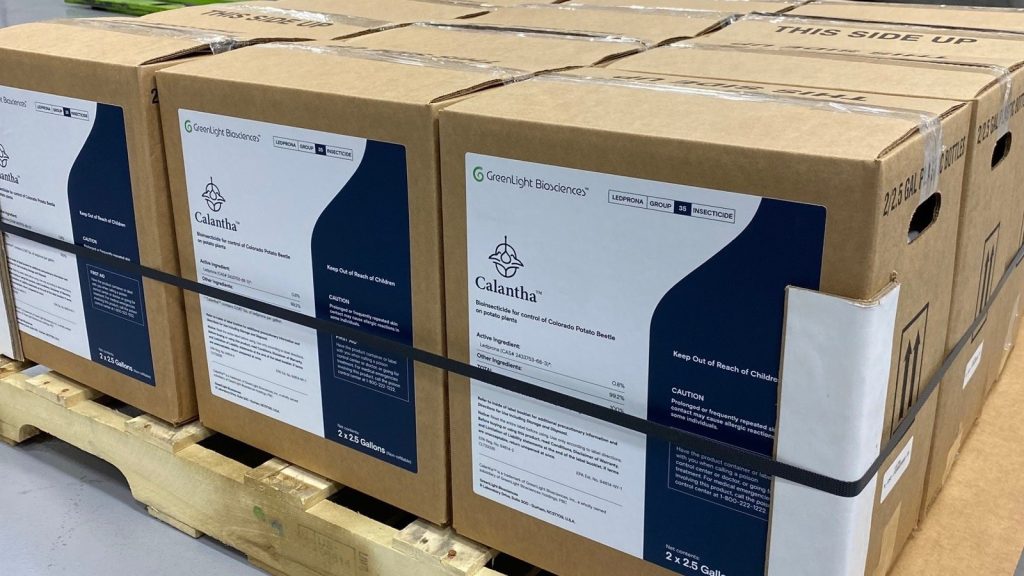EPA proposes to register biopesticide for 3 years to control Colorado potato beetle
Potato growers could soon have a new tool for combating the dreaded Colorado potato beetle, which is ubiquitous across the US and quickly develops resistance to chemical insecticides. The Environmental Protection Agency is proposing to allow a new type of biopesticide that relies on RNA interference (RNAi) for a limited period of 3 years on potato crops.
The pesticide’s active ingredient, called ledprona, consists of double-stranded RNA (dsRNA). The Colorado potato beetle is highly susceptible to dsRNA, which works by silencing a gene the beetle needs to produce a key protein. With the gene turned off, the insect stops eating and dies from metabolic toxins.
GreenLight Biosciences, the Massachusetts-based biotech firm that makes the biopesticide, plans to market it as a sprayable product under the brand name Calantha. Unlike many chemical pesticides, the product degrades quickly in the environment. It is also specific to the Colorado potato beetle, so no other insects are harmed, the company claims.
The EPA approved an experimental use permit in May to test the insecticide in 10 states. That permit requires GreenLight to notify the EPA of any safety concerns to human health or the environment that arise from the experimental uses. So far, no safety concerns have been reported, the EPA says in a Sept. 29 notice announcing the proposal.
If the EPA finalizes the proposal, Calantha would be the world’s first sprayable dsRNA pesticide allowed for commercial use on crops. The agency is accepting public comments until Oct. 13.
Original news release here.



